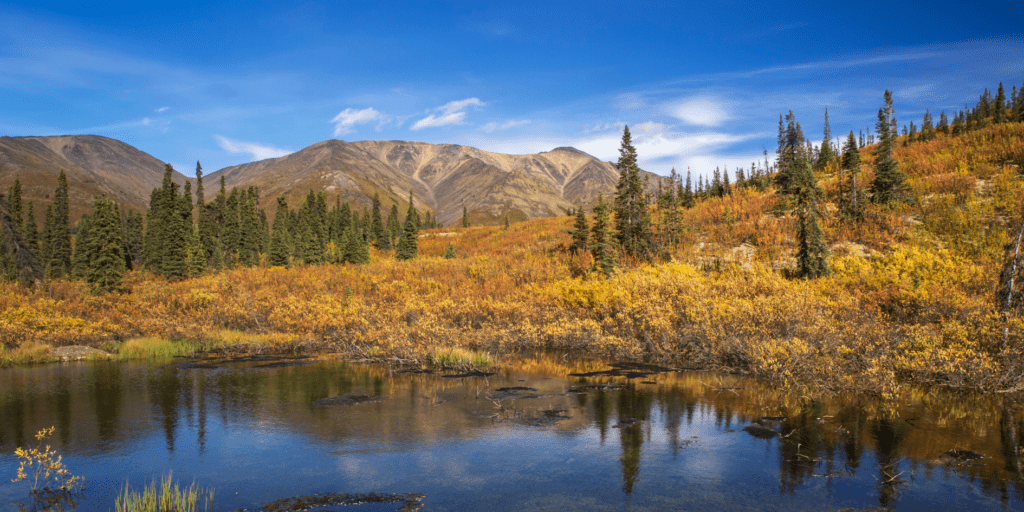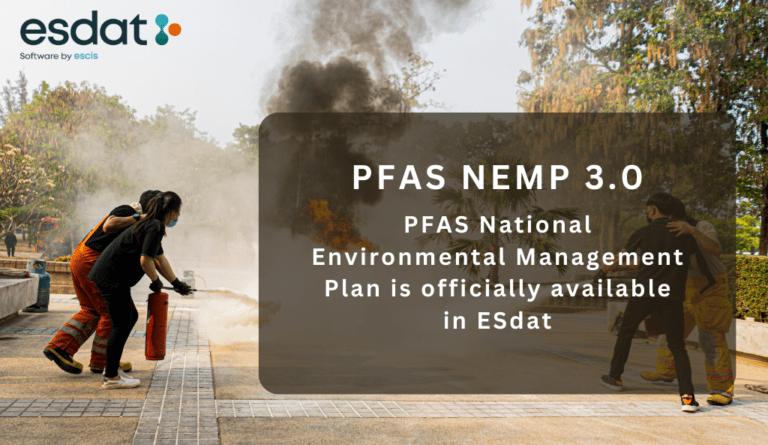The Department of Environment in Yukon is leading, regulating and enforcing Yukon environmental standards for air, water, and soil, as well as managing human impacts on fish and wildlife.
There are several environmental standards and regulations in Yukon, Canada, which include:
- Yukon Environment Act outlines the legal requirements for environmental protection in Yukon.
- Air Emission Regulations: These regulations set limits on the amount of pollutants that can be emitted into the air.
- Regulations on Ozone Depleting Substances and Other Halocarbons: These regulations aim to reduce the use of substances that contribute to the depletion of the ozone layer.
- Guidelines on Wood Burning: These guidelines provide information on how to burn wood to minimise air pollution.
- Canada-Yukon Environmental Agreement (2018): This agreement outlines the commitments of Environment Canada and Environment Yukon to work together to protect the environment in Yukon.
- Yukon Environmental and Socio-economic Assessment Act: This act requires that proposed development projects in Yukon undergo an environmental and socio-economic assessment to determine their potential impacts.
- Yukon Council on the Economy and the Environment Regulations establish the Yukon Council on the Economy and the Environment, which advises the Minister of Environment on environmental and economic issues.
- Recycling Programs Reassignment Regulation: This regulation assigns responsibility for recycling programs to municipalities and regional governments in Yukon.
These standards and regulations aim to protect the environment in Yukon by regulating the use of natural resources, reducing pollution, and promoting sustainable development.
Information on Yukon’s contaminated site regulations YK CSR

How are the environmental standards enforced in Yukon?
The Department of Environment in Yukon takes a leading role in enforcing and regulating environmental standards in the territory. The Enforcement and Compliance Policy has been developed to ensure compliance with the Yukon Environment Act. The policy outlines the principles and procedures for enforcement and compliance, including inspections, investigations, and enforcement actions. The Department of Environment also works with other government departments to ensure compliance with environmental regulations.
In addition, the Yukon Environmental and Socio-economic Assessment Act requires that proposed development projects in Yukon undergo an environmental and socio-economic assessment to determine their potential impacts. This assessment process includes public consultation and review by various government agencies. The Department of Environment is responsible for ensuring that the assessment process is followed and that the potential environmental impacts of proposed projects are adequately addressed.
The Department of Environment in Yukon enforces environmental standards through inspections, investigations, enforcement actions and the environmental assessment process for proposed development projects.
What is the role of the Department of Environment in enforcing environmental standards in Yukon?
The Department of Environment in Yukon is leading in enforcing environmental standards in the territory.
The department’s responsibilities include:
- Regulating and enforcing safe standards for air, water, and soil: The department sets limits on the number of pollutants emitted into the air and water and monitors soil quality to ensure that it is safe for human and wildlife use.
- Managing human impacts on fish and wildlife: The department manages hunting and fishing regulations and protects endangered species and habitats.
- Providing quality outdoor recreation opportunities in territorial parks and campgrounds: The department manages them to ensure they are safe and accessible for visitors while protecting the natural environment.
- Addressing the challenge of global climate change: The department works to reduce greenhouse gas emissions and promote sustainable development in Yukon.
To enforce environmental standards, the department conducts inspections of regulated sites and works with other government departments to ensure compliance with environmental regulations. The department also has an Enforcement and Compliance Policy that outlines the principles and procedures for enforcement and compliance with the Yukon Environment Act. In addition, the department is responsible for ensuring that proposed development projects in Yukon undergo an environmental and socio-economic assessment to determine their potential impacts. Overall, the Department of Environment is critical in enforcing environmental standards in Yukon to protect the environment and promote sustainable development.
What are the air emission regulations in Yukon?
The air emission regulations in Yukon aim to limit the amount of pollutants emitted into the air. The regulations include:
- Air Emissions Regulations: These regulations limit the amount of pollutants emitted into the air, including industrial and commercial sources. The regulations apply to various pollutants, including particulate matter, nitrogen oxides, sulfur dioxide, and volatile organic compounds.
- Yukon Ambient Air Quality Standards: These standards provide the maximum concentrations of pollutants acceptable in ambient air throughout Yukon. The standards cover a range of pollutants, including particulate matter, sulfur dioxide, nitrogen dioxide, and carbon monoxide.
To comply with the air emission regulations, businesses and industries in Yukon must obtain an air emissions permit from the Department of Environment. The permit outlines the specific requirements for the business or industry to limit emissions and ensure compliance with the regulations. The Department of Environment also conducts inspections and investigations to ensure compliance with the regulations and takes enforcement actions when necessary.
The air emission regulations in Yukon aim to protect air quality and public health by limiting the amount of pollutants that can be emitted into the air.
What are the penalties for violating air emission regulations in Yukon?
The penalties for violating air emission regulations in Yukon include fines, legal action, and revocation of air emissions permits. The specific penalties depend on the severity of the violation and the circumstances surrounding it.
Businesses and industries in Yukon that violate air emission regulations may be subject to fines under the Yukon Environment Act. The fine depends on the severity of the violation and can range from $500 to $1 million. In addition to penalties, businesses and industries may face legal action, including court orders to cease operations or remediate environmental damage.
If a business or industry violates the conditions of its air emissions permit, the Department of Environment may revoke the permit. This would require the business or industry to cease operations until they can demonstrate compliance with the regulations and obtain a new permit.
The penalties for violating air emission regulations in Yukon are designed to ensure compliance with the rules and protect air quality and public health.
How are penalties for air emission violations determined in Yukon?
The penalties for air emission violations in Yukon are determined based on the severity of the breach and the circumstances surrounding it. The following factors may be considered in determining penalties:
- Type of violation: The penalties for different types of air emission violations may vary depending on the severity of the violation and the potential harm to public health and the environment.
- Duration of violation: The length of time that the violation occurred may be considered in determining the penalty. More prolonged violations may result in higher penalties.
- Intent: The intent of the violator may be considered in determining the penalty. Willful or intentional violations may result in higher penalties than unintentional violations.
- Compliance history: The compliance history of the violator may be considered in determining the penalty. Repeat offenders may face higher penalties than first-time violators.
- Remediation efforts: The efforts made by the violator to remediate the violation may be considered in determining the penalty. Prompt and effective remediation efforts may result in lower liabilities.
The penalties for air emission violations in Yukon may include fines, legal action, and revocation of air emissions permits. The fine depends on the severity of the offence and can range from $500 to $1 million. In addition to penalties, businesses and industries may face legal action, including court orders to cease operations or remediate environmental damage. If a business or industry violates the conditions of its air emissions permit, the Department of Environment may revoke the permit. This would require the business or industry to cease operations until they can demonstrate compliance with the regulations and obtain a new permit.
Department of Environment
https://yukon.ca/en/department-environment
Yukon: Environment profile
Yukon Environmental and Socio-economic Assessment Act
https://laws-lois.justice.gc.ca/eng/acts/y-2.2/page-1.html






